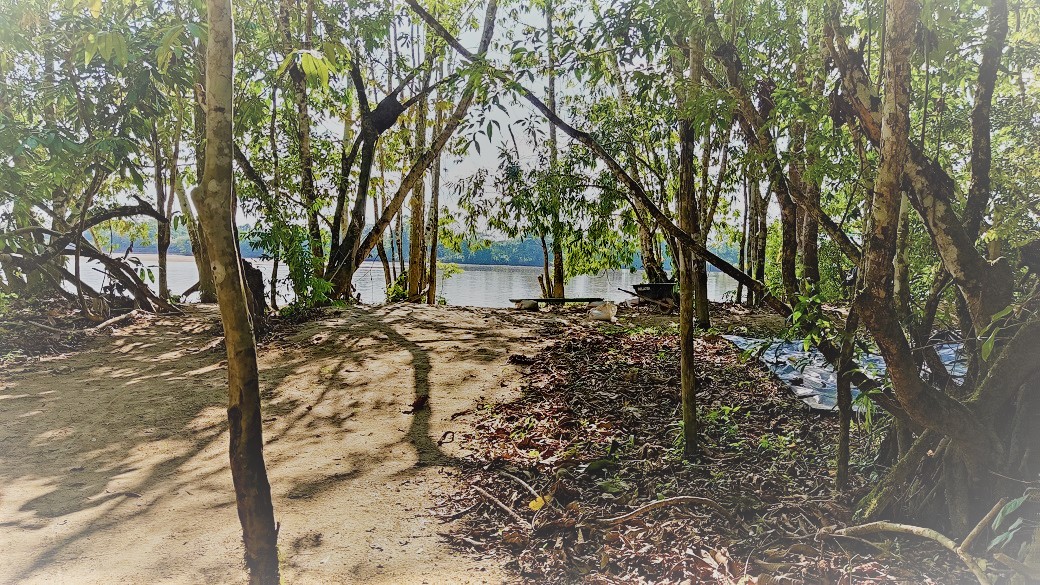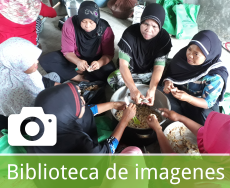“Walk the Talk,” Women from Various Global Regions Urged Parties at the 11th COP CBD
Women’ Caucus / Convention on Biological Diversity
11th COP, Hyderabad, India
On October 15, World Rural Women’s Day, in a press conference at the sidelights of the 11th Conference of Parties (COP) of the Convention on Biological Diversity in Hyderabad, India, four women from various global regions spoke about their experiences and best practices in addressing issues and concerns on biological diversity .
Evelin Acosta Gutierrez, a social worker for the Indigenous Wayuu, Ipuana in Colombia, opened the press conference with a ritual thanking Pacha mama and her ancestors for providing the opportunity for women to gather in this event, and said: “Today women in the world, among them indigenous and local community women, recognize our fundamental role as stewards of Mother Earth – pacha mama.»
She then raised the calls from indigenous and local communities to the parties gathered now for the CBD:
- recognition and integration of indigenous peoples’ knowledge, innovation and traditional practices as priority for the parties, gender and youth aspects must be addressed as cross-cutting issues.
- development of sui generis systems for protecting knowledge and innovations in traditional practices regarding biodiversity.
- ensure that implementation of article 8(j).
- state parties implement the CBD Gender Plan(Decision IX/9).
- oppose ongoing proposals of new and emerging, extremely risky, technologies (such as GMOs, synthetic biology and geo-engineering).
- support the recommendations from the UN Permanent Forum on Indigenous Issues and the statement that Norway provided, regarding the change of “indigenous peoples and local communities” instead of “indigenous and local communities.”
Second speaker Tess Vistro from the Philippines, spoke about the the importance of accurately capturing the realities of women through clear sex disaggregated data which must then be the basis for the formulation of gender indicators for biodiversity targets and implementation of plans at all levels. She noted that women tend to be the frontline casualties of biodiversity loss and erosion, as well as having the least in access and benefit sharing of biodiversity development and conservation. But as traditional knowledge holders in most societies, in their hands likewise lay the keys to the solution of biodiversity loss which has devastated food and livelihood resources in their communities.
She said: “ these realities of women must be measured and used as a basis for drawing up of biodiversity plans and indicators.” She concluded that only when this is done can we ensure that women will not be left out, will benefit from the fruits of the utilization of biodiversity, will become a valuable human resource indispensable in all development undertaking including in the achievement of the objectives of the convention.
Mona Datta, the third speaker is a human geography teacher at the Vasant Valley School in New Delhi, emphasized the importance of capacity building for women’s empowerment. She asserted: “ women are involved from the growing of food and feeding their families. Yet they are also the poorest of the poor in most countries. There is a need to tap women’s traditional knowledge as it is a precious knowledge that is getting wasted and will soon die out if not utilized. If you empower women, you empower a generation.”
And what are the ways of building capacities? Ms. Datta believes capacity building must be done by reaching out to local people in remote villages where a whole new set of knowledge can be found. Illustrating this, she shared an experience from women in the state of Uttrakhand during one of her visits in remote villages. And this is about preservation of potatoes where local farmers cut the potatoes in two parts, put them in a sack and bury it in a soil a meter and a half deep during winter and the seed is preserved for the next season. This kind of knowledge one can not learn in school, but is a valuable knowledge that is sustaining food and lives in remote villages.
She said: «I believe these are the kind of knowledge of women that needs to be valued and shared. For me, this is important as I teach students, both girls and boys.”
Fourth speaker Ms.Stella Gama, from Malawi talked about how gender issues are integrated in an European Union funded program called Improved Forest Management and Sustainable Livelihoods as primary users of forest resources. She highlighted how women are included and excluded in some three thematic areas on capacity building, forest governance and benefit sharing.
Ms. Andrea Quesada from Costa Rica, facilitator of the press conference, leads the Women’s Environment and Development Organization (WEDO) team engaging with the CBD process.
Concluding the press conference, Ms. Quesada echoed the call of the women for an 11th COP of the CBD outcome document, with strong language on gender in all relevant sections of the text. She took note of CBD CRP.5 on Progress Report on Gender Mainstreaming, as a welcome document, but urges parties to “walk the talk,” and pursue the implementation of these important text at national and international levels.
Contact Andrea Quesada andrea@wedo.org










